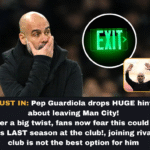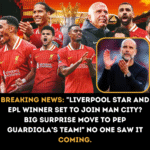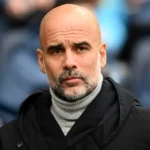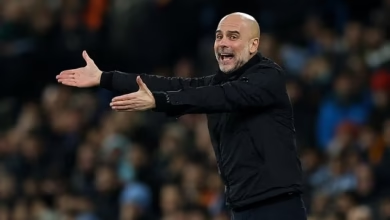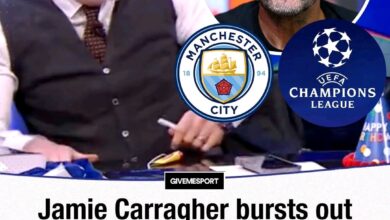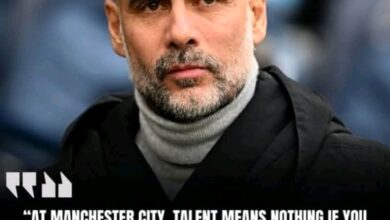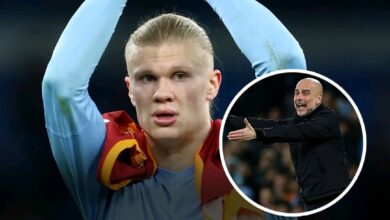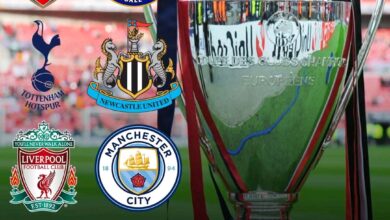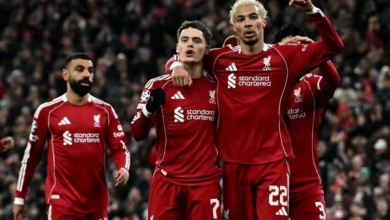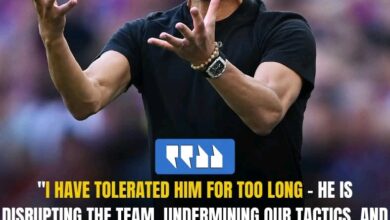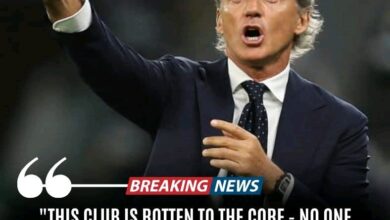Why Pep Guardiola is allowing him to leave Man City with renowned assistant set to become latest backroom member to exit
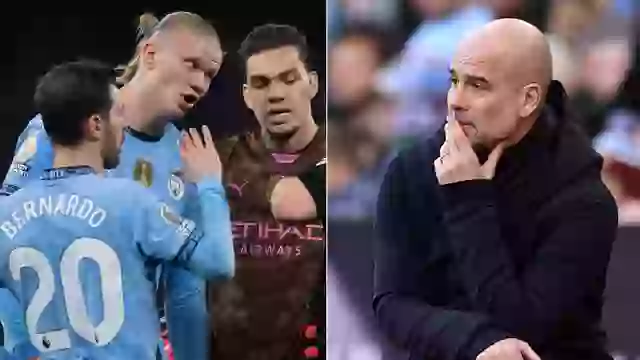
Manchester City, the undisputed titans of English football for the better part of a decade, find themselves in uncharted territory. The club that has redefined excellence under Pep Guardiola’s stewardship now faces its darkest hour since the Catalan manager’s arrival at the Etihad Stadium in 2016. With nine defeats in their last twelve matches across all competitions, City’s seemingly invincible aura has been shattered, leaving fans, pundits, and the football world at large questioning whether this represents a temporary blip or the definitive end of the most dominant era in the club’s history.
The statistics make for sobering reading. After establishing themselves as the benchmark for consistency and quality in the Premier League, City have tumbled to sixth place in the table, a position that would have been inconceivable just months ago. More damaging still is the psychological impact of trailing Liverpool by nine points, with Jürgen Klopp’s successors at Anfield holding games in hand that could extend that gap even further. For a team accustomed to setting the pace from the front, the current predicament represents not just a crisis of results, but a fundamental challenge to their identity as football’s most relentless winning machine.
The Guardiola Paradox
Perhaps the most intriguing aspect of City’s current malaise is how it coincides with Pep Guardiola’s decision to extend his contract until 2027. Just as speculation mounted about his potential departure at the end of the current season, the master tactician committed his future to the club, sending a clear message that he intends to oversee what many now recognize as a necessary period of reconstruction. This decision, viewed through the lens of recent results, takes on profound significance as both a statement of intent and an acknowledgment that the current squad has reached the end of its natural cycle.
Guardiola’s track record speaks to his ability to reinvent teams multiple times during his tenure. At Barcelona, he evolved the team that won the Champions League in 2009 into an even more devastating unit that claimed the trophy again in 2011. His time at Bayern Munich, though ultimately ending without European glory, saw him implement significant tactical and personnel changes that kept the team competitive at the highest level. Now, at Manchester City, he faces perhaps his greatest challenge yet: dismantling and rebuilding a squad that has achieved unprecedented success while simultaneously managing the expectations of a fanbase and ownership group accustomed to nothing less than perfection.
The Spanish football journalist Guillem Balague’s revelation that Guardiola plans to replace five or six regular starters represents more than squad rotation – it signals a philosophical reset. This isn’t merely about refreshing aging legs or addressing tactical deficiencies; it’s about acknowledging that the current group of players has reached the natural conclusion of their collective journey. The challenge now lies in identifying which players form the foundation of the next great City team and which must make way for a new generation of talent.
The Aging Core and Contract Conundrum
Central to City’s current predicament is the unavoidable reality of time’s march. The spine of the team that has delivered unprecedented success is entering the twilight of their careers, creating both immediate performance issues and long-term strategic challenges. Ilkay Gündogan and Kevin De Bruyne, two of the most influential midfielders of their generation, are 34 and 33 respectively, with both players’ contracts expiring at the season’s end. Their potential departures would represent the loss of nearly 15 years of combined experience and tactical intelligence that has been instrumental in City’s dominance.
The situation becomes even more complex when considering Kyle Walker’s position. At 34, the England international remains one of the world’s premier full-backs, but his advancing age raises questions about his ability to maintain the relentless pace that Guardiola’s system demands. With 12 months remaining on his contract beyond this summer, City face a delicate balancing act between honoring the contributions of a player who has been central to their success and planning for a future that may require a different profile of defender.
These contract situations create a perfect storm of uncertainty. From a sporting perspective, losing players of such caliber simultaneously would create massive voids in experience, leadership, and technical ability that no amount of transfer spending can immediately replace. From a financial standpoint, allowing such valuable assets to leave on free transfers represents a significant opportunity cost in a landscape where Financial Fair Play regulations have become increasingly stringent.
The broader implications extend beyond individual players to the team’s collective identity. Gündogan’s return to City after his Barcelona sojourn was heralded as a homecoming that would provide stability during a transitional period. Instead, his second stint has coincided with the team’s worst run of form under Guardiola. Similarly, De Bruyne’s creative genius has been the catalyst for countless memorable moments, but his advancing years and injury concerns raise questions about whether City can continue to build their attacking philosophy around a player who may no longer be capable of the sustained brilliance that once defined his game.
The Haaland Dilemma
Perhaps no player embodies City’s current struggles more than Erling Haaland. The Norwegian striker, acquired with great fanfare as the final piece in Guardiola’s tactical puzzle, has seen his goal-scoring rate dramatically decline since October. With only three goals in nearly three months, the player who once seemed destined to rewrite scoring records now finds himself questioning his own performances in brutally honest post-match interviews.
Haaland’s admission that he hasn’t been “good enough” reflects a broader crisis of confidence that has infected the entire squad. For a player whose career has been defined by an almost supernatural ability to find the net, the current drought represents more than a temporary slump – it suggests fundamental issues with City’s attacking structure and the service being provided to their primary goal threat.
Guardiola’s public defense of his striker reveals the complexity of the situation. While the manager’s refusal to accept Haaland’s self-criticism demonstrates loyalty and tactical understanding, it also highlights the interconnected nature of City’s problems. The striker’s struggles cannot be divorced from the team’s overall dysfunction, just as the team’s attacking impotence cannot be entirely separated from Haaland’s individual performance levels.
The psychological dimension of Haaland’s situation deserves particular attention. Having joined City with the expectation of immediately elevating them to new heights, the current crisis of results places enormous pressure on a player still adapting to the unique demands of Guardiola’s system. The contrast between his explosive debut season and current struggles illustrates how quickly confidence can evaporate in elite football, and how individual and collective performance are inextricably linked.
Tactical Evolution and Strategic Mistakes
City’s current crisis cannot be attributed solely to aging players or individual underperformance. Tactical analysis of their recent matches reveals systemic issues that suggest Guardiola’s methods may require fundamental adaptation. The team’s defensive fragility, once an occasional concern, has become a persistent weakness that opponents have learned to exploit with increasing sophistication.
The loss of defensive stability stems partly from personnel changes and injuries, but also from tactical decisions that have left City vulnerable to transitions and set-pieces. The high defensive line that once suffocated opponents now appears to offer too much space for pacey forwards, while the intricate passing patterns that previously mesmerized defenses now seem predictable and easily disrupted by well-organized pressing.
Guardiola’s tactical evolution at City has always been marked by constant refinement and adaptation. The team that won their first Premier League title under his guidance bore little resemblance to the side that completed the treble, which in turn differed significantly from the team that achieved the unprecedented feat of winning four consecutive league titles. However, the current crisis suggests that the tactical innovations that once provided competitive advantages may have reached the point of diminishing returns.
The challenge facing Guardiola is whether to persist with the philosophical principles that have brought such success while addressing specific weaknesses, or whether to embrace more fundamental changes that might sacrifice some of City’s aesthetic appeal in favor of pragmatic effectiveness. The manager’s history suggests he will choose evolution over revolution, but the severity of the current crisis may demand more dramatic intervention than his previous experience has required.
The Morgan Rogers Revelation
Among the most telling aspects of City’s current predicament is Guardiola’s explanation for allowing Morgan Rogers to leave the club. The young midfielder’s outstanding performance in Aston Villa’s victory over City serves as a painful reminder of the opportunity cost associated with squad management decisions during periods of success.
Rogers’ journey from City’s academy to Premier League stardom via Middlesbrough and Villa illustrates the complex calculations involved in player development at elite clubs. Guardiola’s admission that Rogers would likely be part of the current squad given their present circumstances highlights how success can create blind spots in talent evaluation. When a team is winning consistently with established stars, the patience required to develop young players often becomes a luxury that managers feel they cannot afford.
The broader implications of Rogers’ departure extend beyond individual regret to questions about City’s talent identification and development processes. How many other promising players have been allowed to leave because they couldn’t immediately displace world-class performers? How many potential solutions to current problems were sacrificed on the altar of short-term success?
This situation also reveals the cyclical nature of football success. The players who delivered City’s greatest triumphs – De Bruyne, Silva, Mahrez, Sterling, and Sané – created such a high standard that younger players struggled to earn opportunities. Now, as that generation reaches its natural conclusion, City must confront the reality that their successors may have been developed elsewhere, often by clubs with more modest resources but greater willingness to invest in potential rather than proven quality.
Financial Fair Play and the 115 Charges Shadow
Looming over every discussion of City’s future is the specter of the 115 charges related to alleged Financial Fair Play breaches. Guardiola’s revelation that the verdict is expected between February and March adds another layer of uncertainty to an already complex situation. While the manager has publicly committed to remaining at the club regardless of any potential punishment, the charges create an atmosphere of instability that inevitably affects planning and recruitment.
The charges relate to the period between 2009 and 2018, predating much of City’s most successful era but encompassing the foundational years of their transformation into a global powerhouse. The allegations of providing inaccurate financial information strike at the heart of modern football’s regulatory framework, with potential consequences ranging from points deductions to relegation or transfer restrictions.
For a club attempting to rebuild its squad while competing at the highest level, the uncertainty surrounding these charges creates significant complications. Potential signings may be reluctant to commit to a club facing an uncertain future, while current players might question their long-term prospects at the Etihad Stadium. The timing of the expected verdict, coinciding with the January transfer window and the crucial phase of the season, adds further complexity to an already challenging situation.
Guardiola’s pledge to remain with the club even if relegated demonstrates admirable loyalty, but it also highlights the severity of the potential consequences. The prospect of Manchester City competing in lower divisions would represent one of the most dramatic falls from grace in football history, transforming the current crisis from a temporary setback into an existential threat to the club’s status as a global force.
The Transfer Window Imperative
As January approaches, City face the unusual position of needing immediate reinforcement while simultaneously planning for long-term reconstruction. The dual imperatives of salvaging the current season and building for the future create complex strategic challenges that will test the club’s transfer expertise to its limits.
The immediate priority must be addressing the defensive fragility that has contributed to so many recent defeats. City’s injury problems at the back have exposed a lack of depth that was previously masked by the consistent availability of key players. However, the January transfer window’s limited options and inflated prices mean that quick fixes are likely to prove expensive and potentially counterproductive.
More significantly, City must begin the process of identifying and securing the five or six new starters that Balague suggests will form the core of Guardiola’s third great team. This process requires not just identifying talent, but ensuring that new signings can adapt to the unique demands of the manager’s system while contributing immediately to improved results.
The challenge is complicated by City’s historical preference for signing players who can contribute across multiple positions and adapt to various tactical systems. The technical requirements for success in Guardiola’s team remain extraordinarily high, limiting the pool of available targets and potentially increasing competition from other elite clubs seeking similar profiles.
The Psychological Dimension
Perhaps the most underestimated aspect of City’s current crisis is its psychological dimension. For players accustomed to winning as a matter of course, the experience of consistent defeat represents an entirely new challenge that requires different mental approaches and coping mechanisms.
The confidence that once seemed unshakeable has been replaced by visible uncertainty, with players appearing to second-guess decisions that would once have been instinctive. The fluidity and spontaneity that characterized City’s best performances have given way to a more hesitant, predictable approach that opponents have found increasingly easy to disrupt.
Guardiola’s challenge extends beyond tactical and personnel decisions to the fundamental task of rebuilding his players’ psychological resilience. The manager who once transformed players’ understanding of their own capabilities must now help them rediscover belief in themselves and their collective ability to overcome adversity.
This psychological reconstruction is perhaps more crucial than any transfer activity or tactical innovation. History is littered with teams that possessed superior talent but failed to achieve their potential due to mental fragility, while others have overachieved through sheer determination and collective belief. For City, the path back to the summit requires not just new players and new tactics, but a renewed sense of invincibility that has been their trademark for so long.
The Path Forward
As City prepare for the crucial Christmas period fixtures, beginning with their Boxing Day encounter against Everton, every match carries heightened significance. The decision to train on Christmas Day reflects the urgency of their situation and Guardiola’s recognition that traditional approaches may no longer suffice.
The upcoming months will reveal whether City’s current crisis represents a temporary aberration or the beginning of a more prolonged period of transition. The club’s response to adversity will define not just their immediate prospects, but their long-term status as one of football’s elite institutions.
For Guardiola, the next two years represent perhaps the ultimate test of his managerial genius. Having already demonstrated his ability to build great teams from positions of strength, he must now prove capable of reconstruction from a position of relative weakness. The challenge is immense, but so too is the potential reward of creating a third great City team that can dominate football for years to come.
The story of Manchester City’s crisis is still being written, but its ultimate conclusion will depend on decisions made in the coming weeks and months. Whether this represents the end of an era or merely the prelude to another period of unprecedented success remains to be seen, but one thing is certain: the football world will be watching with intense interest as one of the game’s greatest managers attempts to work his magic once more.



